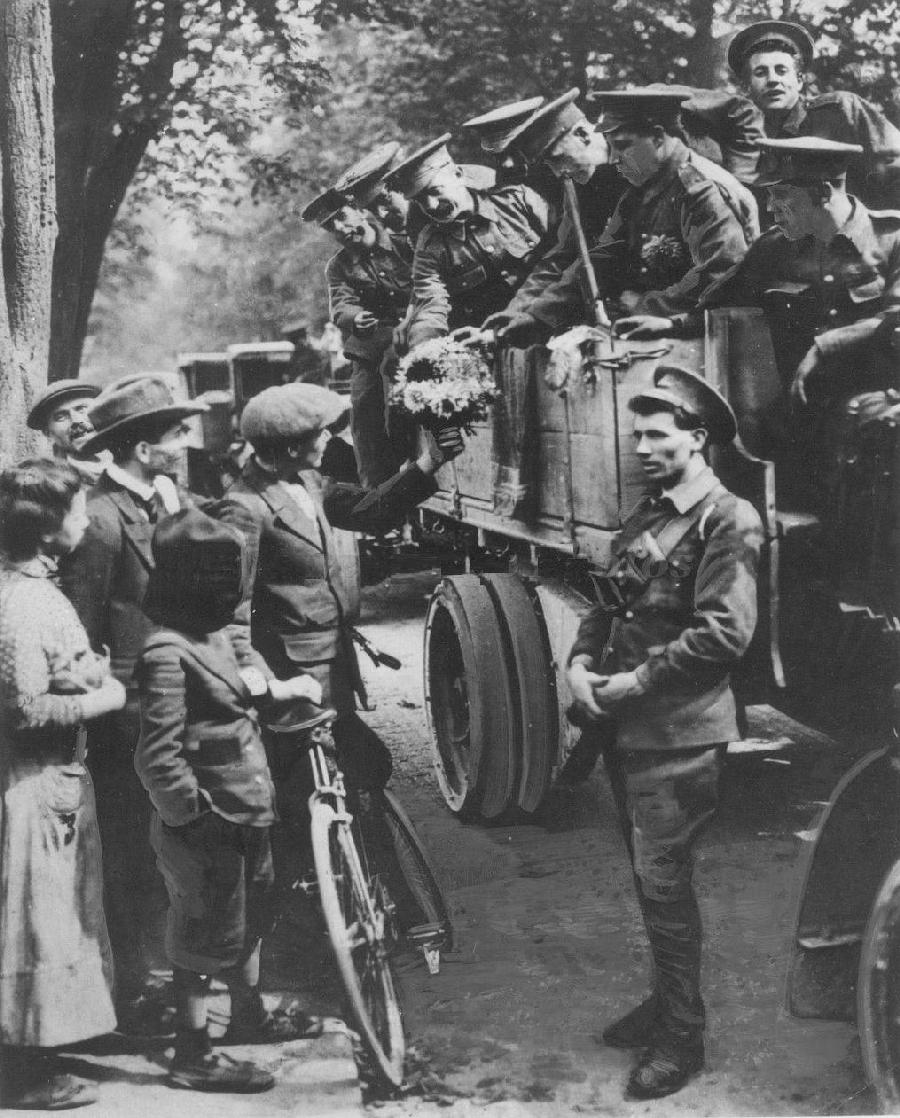
Figure 1.--Here French civilians greet the BEF upon arrival in France. The first BEF troops debarked in France 3 days after the declaration of war (August 7). Notice the trucks. The German Army had few trucks to move its men. |

|
The British Expeditionary Force (BEF) was a brand new British military formation. It was created in an imprtant reform effort undertaken by Richard Burdon (subsequently Viscount) Haldane. The traditional British Army organization was the regiment. And standard British military operations involved transporting regiments or constiuent battalions to the conflict zone. They were then organized into larger units upon arrival. British military thinking began to change at the turn-of-the 20th century, largely because of substantial German military spending and the bellicose nature of Kaiser Wilhelm II. Both Army and Royal Navy iniitiated reforms. The developing treaty relationship with France meant that Britain needed to have a cohesive force in being to send across the Channel when needed to support the French Army. The Haldane reforms resulted in the organization of the Regular Army forces in Britain into an 'expeditionary force' of six infantry divisions and one cavalry division. In continental terms where countries had large conscript armies, this was a rather small force. But it was well trained and equipped and was availble for immediate deployment. When Germany invaded Belgium and France (August 3, 1914), Britain did not have a large conscript army like the Germans and French. But it did have the BEF. Unlike World War II, few in Britain or anywhere else in Europe believed a general European war was likely even a month before the war broke out. The British declared War (August 4). The British immediately deployed four of the six infantry infantry divisions and the cavalry division were rushed across the Channel. The first BEF tropsdebarked in France 3 days after the declaration of war (August 7). They the Germans in Belgium. The British managed to do this faster than the Germans expcted, but it was a very small force. The Kaiser called the BEF a contemptible little army. The unexpected stiff resistance of the Belgian Army and the BEF managed to slow the Germans down, but not stop them. The Germans very nearly reached Paris and won the War (September 1914). It was the French Army that ultimatey stopped the Germans on the Marne. This was only possible, however, because th Belgians and BEF has slowed and exhausted the Germans. While the BEF performed well, it did not have the size to play a decisive role. It also suffered very substantial losses. To win the War, Britain would eventuallyu find that they needed to build a large conscript army like the Germans.
Navigate the Boys' Historical Clothing Web Site:
[Return to Main British World War I Army page]
[Introduction]
[About Us]
[Aftermath]
[Alliances]
[Animals]
[Armistace]
[Biographies]
[Causes]
[Campaigns]
[Casualties]
[Children]
[Countries]
[Declaration of war]
[Deciding factors]
-------[Diplomacy]
[Economics]
-------[Geo-political crisis]
[Home front]
[Intelligence]
[Military forces]
[Neutrality]
[Pacifism]
[People]
[Peace treaties]
[Propaganda]
[POWs]
[Russian Revolution]
[Terrorism]
[Trench warfare]
------[Technology]
[Weaponry]
[Bibliographies]
[Contributions]
[FAQs]
[Images]
[Links]
[Registration]
[Tools]
[Return to Main World War I page]
[Return to Main war essay page]
[Return to CIH Home page]
